Getting a Mutant Makeover With Dark Phoenix‘s Makeup Department Head
Dark Phoenix is the last film in the nearly two-decade-old X-Men franchise. Yet by dropping X-Men from the title, co-writer/director Simon Kinberg, one of the franchise’s most tenured creatives, put the focus squarely on Jean Grey (Sophie Turner). The film is centered on a space rescue mission gone horribly awry, and the resultant transformation of Jean Grey from an already potent member of the X-men into the titular cosmic force with nearly unimaginable powers. When Jean Grey breaks bad, even Magneto (Michael Fassbender) trembles.
Working on this venerable franchise means you have a lot of reference points from past films, while each new installment is required to move the story and these characters into new, unchartered territory. For makeup department head Annick Chartier, this meant finding ways to be creative within the set parameters of characters we mostly know. “There are two challenges,” Chartier said. “When you take on something with a history, it’s important that you put your signature on it without compromising the characters. I adored working with Simon [Kinberg], he was wonderful and very accessible and very open as well. He gave me certain parameters but gave me carte blanche to explore, and allowed me to show him what I had in mind. Creatively it was fun. It was very positive, smooth process.”
The most important character in the film is also the one that Chartier had the most leeway with—Jean Grey. Because Dark Phoenix concerns itself with her metamorphosis into what could reasonably be called a Goddess of Death, Chartier worked hard to maintain a link to the previous iterations of the character (played for the first time by Turner in 2016’s X-Men: Apocalypse), while tracking her transformation into the Dark Phoenix.
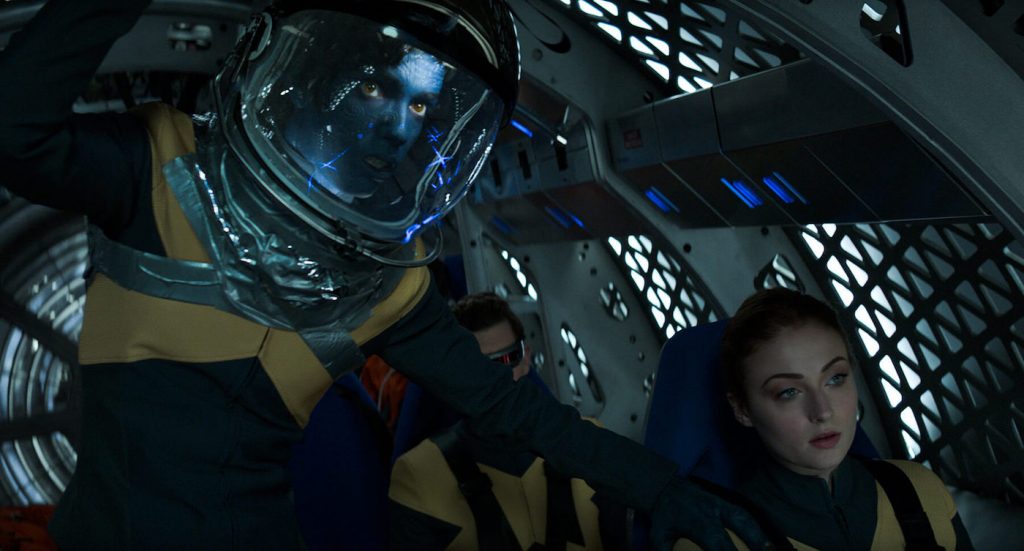
“In the last film, Jean’s look was more ingénue, with her hair back, a small bit of eyeliner, but for Dark Phoenix, I wanted to bring a womanly look,” she says. “But Jean also had to be in harmony with Tye Sheridan’s look, as Cyclops, her boyfriend. I didn’t want them to look like they didn’t fit together. I think that Simon has a really good eye. He likes a more natural look. No fake eyelashes or things like that.”
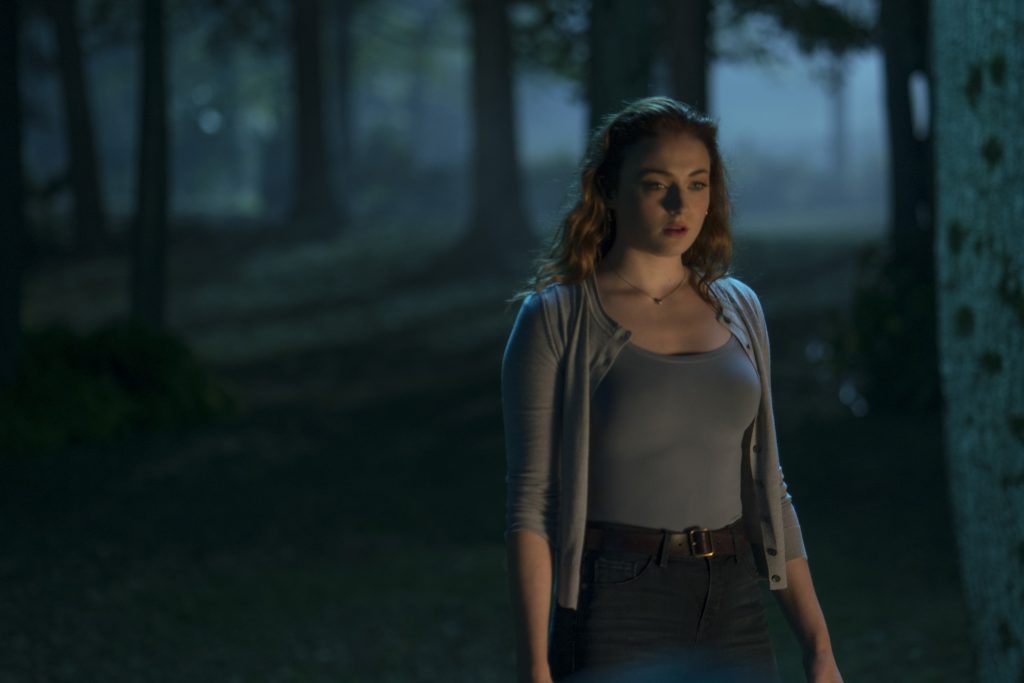
Turner not only brings her acting chops to the film but also her natural hair and eye colors which were gifts to the seasoned Chartier. “We play a lot with her eyes in this movie, there’s a lot going on there, so it was very important for her eyes to be striking,” she says. “Sophie has beautiful features and it doesn’t take very much for them to pop. I’ve stayed in harmony with her hair color—rust and blondes—so it flows together without standing out too much. Her eye shadow is within the same palette as her hair, so because she’s a redhead, I used auburn and orange-brown.”
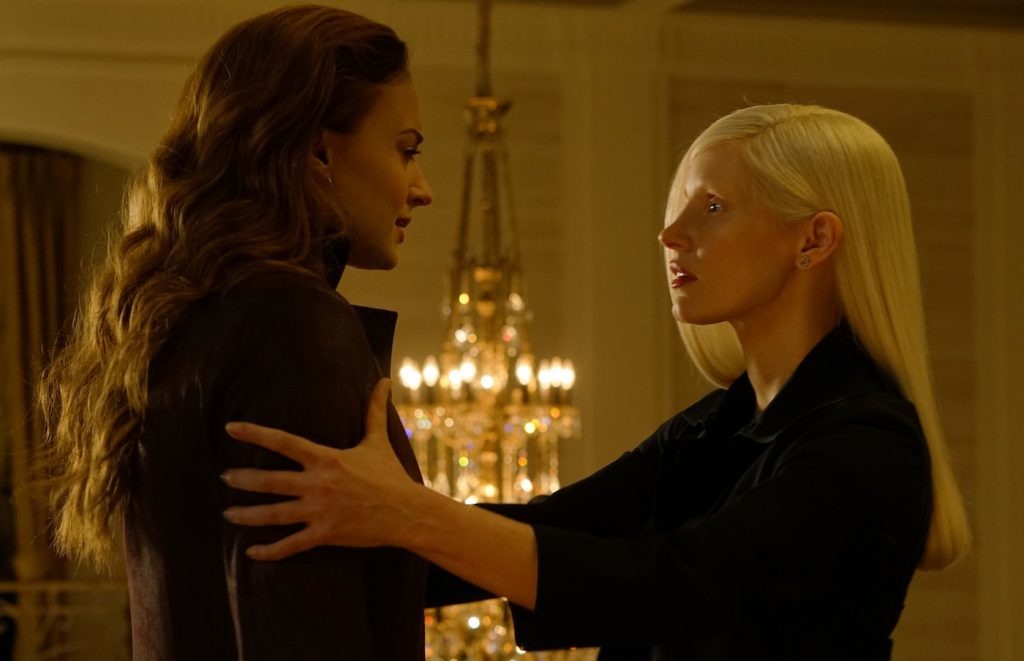
Because of the emotional heavy lifting that Turner has to do in the role, Chartier also has to make sure her makeup can withstand the rigors of tears, screams, and just about every other feeling on the emotional spectrum. Jean’s transformation has physical manifestations that are hard to miss (and mostly CGI). Glowing veins pulse on her face. Her green eyes become supernaturally iridescent. As the story unfolds, Jean’s transformation into the Dark Phoenix is most visible on her face. Chartier had to track these permutations precisely.
“You have to be cognizant that these characters have to go through all these emotional beats and everything must stay together,” she says. “I work with powders to make sure everything stays where it should be. Everything has to be waterproof. If you don’t use liquid products, it won’t run. It may fade a bit, but I had to pick products that would stay. Generally, I’m very happy with how it turned out. Sophie’s makeup doesn’t move; some actors, I have to say, there’s a lot more maintenance required. For Sophie, it’s incredible; everything is perfect about this girl.”
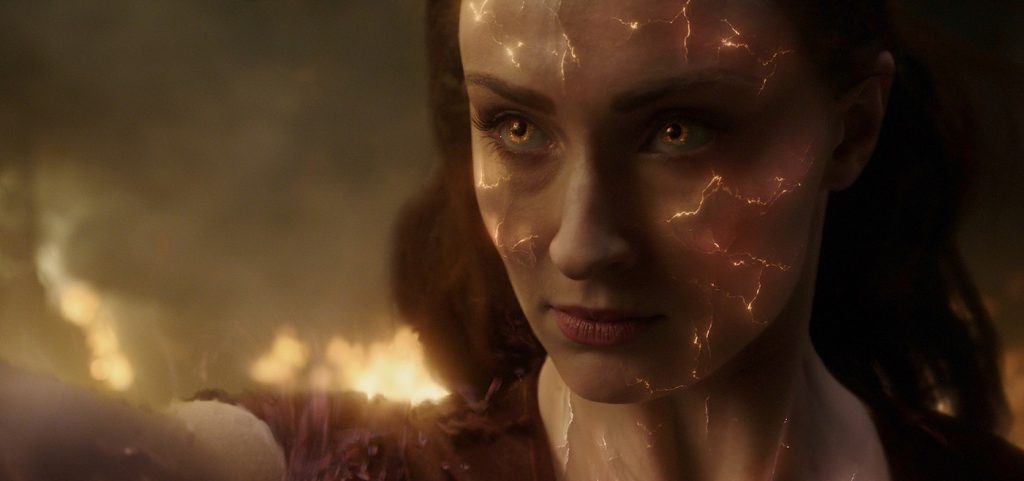
Jean Grey wasn’t the only character that Chartier had a mandate to give a slightly new look. “For Storm (Alexandra Shipp), I changed her eye makeup in Dark Phoenix, as well as her lips, from what she had previously in Apocalypse,” Chartier says. “She’s got this very strong, dynamic short haircut. I didn’t want to do any lips on her, because I wanted the focus to be on her eyes and the structure of her face. There are a lot of close-ups in this film. Also, something you have to be careful with lipstick; if it doesn’t look like its organic to the whole face, especially for a character like Storm, whose into all these action scenes, you could have a problem. Often times Alexandra was like, can I have some lip? And I’d say, no darling, you look fabulous [laughs].”
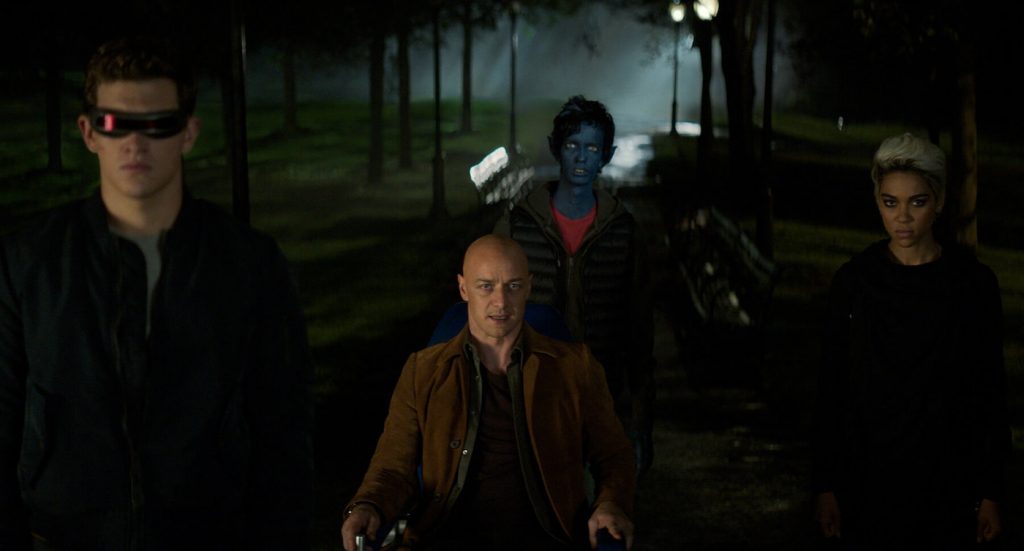
As for the men, James McAvoy’s Professor X famously shiny dome requires a lot of maintenance. Chartier has developed her own recipes for McAvoy’s makeup. “Professor X is bald, but James isn’t,” Chartier says. “When you shave someone with hair to the skin, there’s a bluish tone to their scalp. Some days we were shooting and it was super, super hot. So you start with a color in the morning so everything looks unified. Then the actor will get into a very physical or demanding scene, and as his own metabolism acts up, he starts sweating, getting red, and then because what’s on his head isn’t actually skin, while his face and cheeks get red, his scalp won’t, so you have to correct the scalp as the scene progresses. It’s quite a work out for everybody. We had to shave him every day and maintain the health of the skin of his scalp.”
One of the aspects of Chartier’s job that often goes unremarked is how closely she has to work with actors throughout the entirety of a shoot, while also remaining more or less invisible. Chartier’s long, fruitful career has made her something of an actor-whisperer. She’s also an X-Men alum, having worked on X-Men: Days of Future Past, also shot in and around her home city of Montreal.
“You have to do all this work without disturbing or breaking the flow of the actor’s emotions because they have a job to do,” she says. “My job is to make them look the part and do it as fast and quick and with as minimal invasion as possible. I start by building trust between the actor. There’s hardly any language necessary at that point. It’s hard for me to describe, but you have to do things efficiently, quietly. You have to not be in their eye-line. They have a job to do, and so do I. You’re on a movie set, and what’s going on camera is why you’re there. It’s not you, or your life, or the joke you want to tell the actor. We’re all here to tell the same story. Once we’re on set, we have to recognize that. You have to love actors, you have to love filmmaking, and you have to respect it.”
Dark Phoenix hits theaters on Friday, June 7.
Featured image: Sophie Turner stars as Jean Grey in Twentieth Century Fox’s DARK PHOENIX. Photo Credit: Courtesy Twentieth Century Fox.



